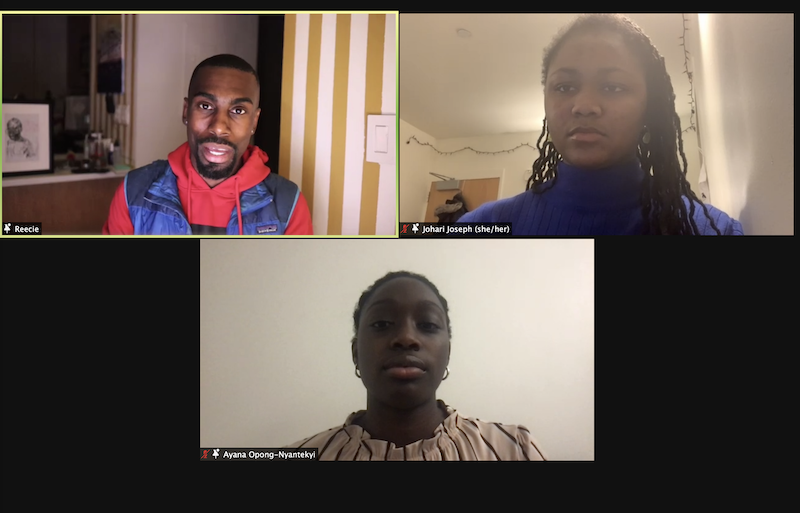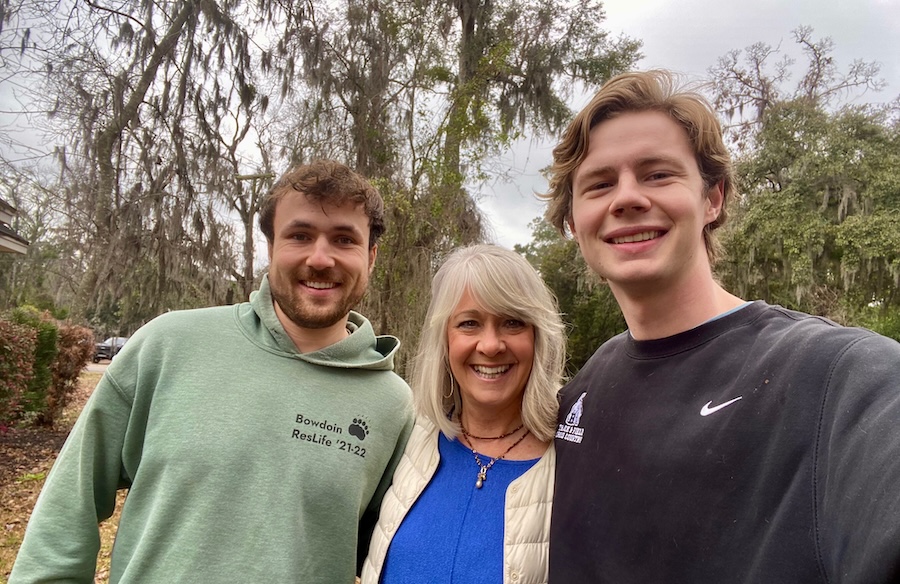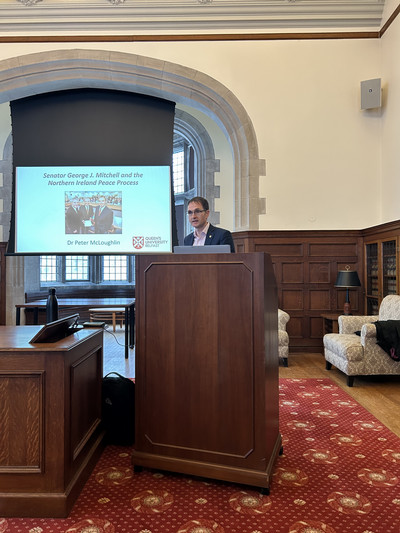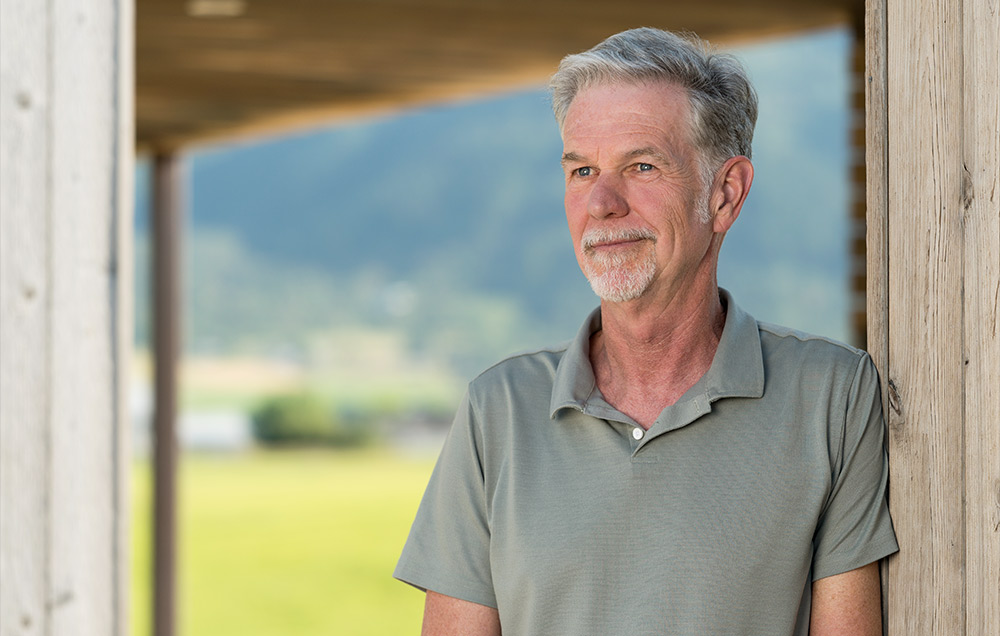Civil Rights Activist DeRay Mckesson ’07 Urges Students to Seek Solutions
By Rebecca Goldfine"Racism, to me, is present, not permanent. I believe that the ills we fight against are here today but they are not baked into the world. Poverty, white supremacy, anti-Blackness, health care disparities: They’re here but they're not permanent." DeRay Mckesson, February 23, 2021
Mckesson, who will receive an honorary degree from Bowdoin at the 2021 Commencement in May, spoke with the Bowdoin community as part of the College celebration of Black History Month. Close to 500 people tuned in for the Tuesday evening online event.

Joseph and Opong-Nyantekyi asked Mckesson a number of questions, starting off with an inquiry about his trajectory from Bowdoin to one of the Black Lives Matter leaders.
Mckesson said his life changed when he joined the 2014 protests in Ferguson, Missouri, after the fatal shooting of Michael Brown. He originally planned to participate for a weekend, but ended up staying (with a Bowdoin friend) for three months. He vowed to dedicate himself to stopping police brutality, and went on to cofound Campaign Zero, a nonprofit dedicated to ending police and state violence.
"We believe we can win in this lifetime," he said. "We believe that the only way the outcomes will change is if structures change. Symbolic change is cool; narrative shifts are important. But they don't change outcomes. And we're rooted in changing outcomes."
To that end, Campaign Zero launched 8 Can't Wait last year to push police departments to adopt eight "common-sense" use-of-force policies. Hundreds of police departments have pledged to implement these strategies, which include banning choke holds, requiring officers to give a warning before shooting, and changing reporting systems for use-of-force incidents.
"There is no reason a traffic stop should result in a police killing," Mckesson said. Search warrants, too, he argued, should be harder to obtain, and they should include the ages and genders of residents in the targeted household.
Unfortunately, despite the activism and the growing awareness and outcry by the public, the number of police killings in the US has not diminished. Last year was the second deadliest year on record for police violence. (Data on police brutality has been collected since 2013.)
Also, despite the media focus on cities, police violence is growing in suburban and rural areas, Mckesson said. "Cities are the only place where it's getting better," he noted. "Most of the organizing happens in cities, which is why the problem is decreasing there."
However, some US cities do have disproportionate rates of police violence. In seven of the 100 largest cities—including Reno, Nevada, and Oklahoma City, Oklahoma—police killings of Black men exceed the national murder rate. Mckesson and his team focus on where the problems are.
Mckesson majored in government and legal studies, focusing on political theory. In response to a question about how his undergraduate studies have influenced his career, he first gave credit to two professors: "Shout-out to Paul Franco! Love Franco! And Professor Yarbrough, I took almost every class she offered. I credit Franco with changing my life in his Nietzsche seminar."
He continued: "Political theory reminded me that sometimes we believe leadership is about the role: the mayor, the governor, etc. But the people who shape the ideas always have the most power."
"I spend a lot of time in state legislatures," he said. "You would be shocked by how much one, five, ten people really matter. One of the unfortunate things about the internet is that it has convinced people that unless you have 10,000 followers or 5,000 retweets, you don't matter."
A small group sending their state and local representatives self-written emails can do a lot. "You have way more power than you think," he said.
Armed with Data
Since mobilizing in the wake of Michael Brown's death, the Black Lives Matter movement has equipped itself with a huge amount of data. "The movement has changed in a lot of ways," Mckesson said. "In 2014 and 2015, there were a lot of things we just didn't know. Now we know. We know way more about what is going on than we did before."
This research provides a clearer look at what is happening across the country. Contrary to common belief, police do not kill more people in communities with higher rates of violence. "There are places with a lot of community violence and not a lot of police violence, and vice versa," Mckesson said. "These are things we didn't know before."
And the data show that Black people are more likely to be unarmed, and not threatening anyone, when they are killed. "The disparities are real around race," he said.
"The Solution Space Is Wide Open"
Urging students to be innovators in social justice, Mckesson said he's observed that many activists focus on explaining what is not working rather than on coming up with answers. "A lot of energy is spent talking about the problem. What I realize now, that I didn’t in 2013, is that there is a very small slice focused on solutions," he said. "We spend almost all our work in that space."
"We need more people willing to imagine the future we deserve. The solution work has not been done. Most of the issues you care about, if you want to help carve out the solution space, it's wide open. It is wide open." — DeRay Mckesson



